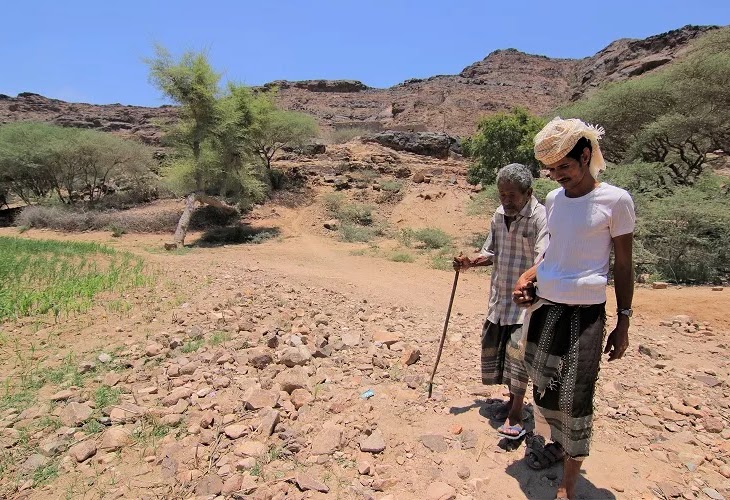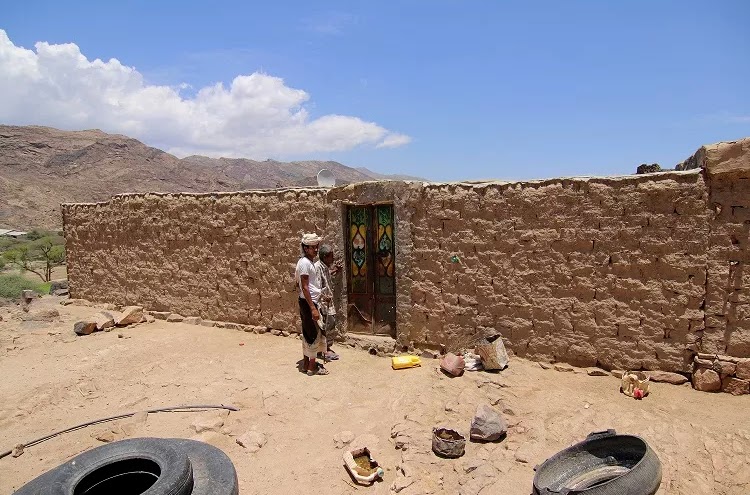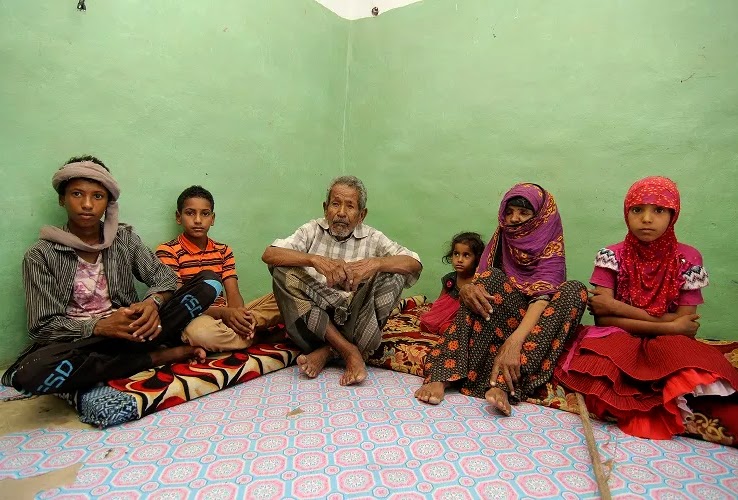“God provides for us through work, so an idle man will suffer hunger” says 100 year-old haji Mohsen Muthanna, as if he were still in his prime. That is how he reflected the values he grew up with. Haji Mohsen lives in the remote rural area of Ruweida in Al Milah District, Lahj governorate. He has a big family, his 70-year-old wife, two sons and four daughters. He is also responsible for his widowed daughter and her four children. He dwells with his family members in a two-room mud-brick house, far away from public services. Haji Mohsen owns a piece of land estimated at one and a half acres, which is the sole source of livelihood for his family, yet his land is never enough to meet the family’s basic needs, let alone keeping with the evolving demands of life.

His 100 years have not undermined his commitment to work and earn a living, yet the physical fatigue has come like an uninvited guest. “Now I get more tired and I am no longer able to work as before”, he says. Haji Mohsen works his land from the early morning sun until noon. After a short rest, he goes back in the afternoon to finish working, thus continuing the life cycle tirelessly. His land is nearly a kilometer away from his home, and he cannot go all the way by himself, so he reaches the land with the help of his sons who also help in taking care of the land.

With KSrelief’s support, the UN Food and Agriculture Organization (FAO) is currently empowering the most vulnerable households in six Yemeni governorates, including Hajjah, Amran, Taizz, Lahj, Abyan, and Ad Dhale. The project aims to improve availability and access to food for 70,000 households such as Haji Mohsen’s, through three types of interventions, including poultry production, improving animal and agricultural production, and improving livelihoods’ conditions in coastal areas of Yemen by rehabilitating fisheries infrastructure. Through this project hundreds of thousands of Yemenis will be able to restore their livelihoods.

Source of the story: King Salman Humanitarian Aid and Relief Center

